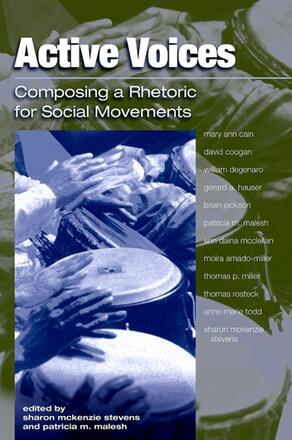
Active Voices
Composing a Rhetoric for Social Movements
Alternative formats available from:
Explores the relationship between social movements and rhetorical theory and practice.
Description
From suffragettes to vegans, participants in social movements strive to change the worlds they inhabit, whether by direct action, rallies, marches, organized work stoppages, or engaging government power in service of their aims. Active Voices explores both the rhetorical dimensions of such activist activities and the integral role of rhetoric in the processes of social transformation. This collection balances in-depth analyses of particular movements and pedagogical projects with broader perspectives on how language and embodied action shape avenues for activism. Featured are a wide range of sites for social change, from the progressive education movement to African American drum circles, and from prisoner reentry programs to the nineteenth-century women's suffrage movement. Speaking as scholars, activists, storytellers, rhetoricians, and teachers, the contributors blur the boundaries between different aspects of their identities and challenge divisions between creating theory and practicing it.
Sharon McKenzie Stevens is Lecturer in the School of English and Media Studies at Massey University in Aotearoa/New Zealand and the author of A Place for Dialogue: Language, Land Use, and Politics in Southern Arizona. Patricia M. Malesh is Assistant Professor of Communication and Associate Director for the Program for Writing and Rhetoric at the University of Colorado at Boulder.
Reviews
"Seasoned scholars and those new to social movement study alike will find this collection instructive, engaging, and novel in its approach and argument. As does all good scholarship, the contributors write in a way that invites readers to join the conversation, to view their work through the proffered methodological lens. Perhaps more importantly, Active Voices offers an exemplary model of scholarship that seems effortless in its reunification of communication and English studies scholars working on a level playing field—a strong trend in new social movement scholarship. " — College Composition and Communication
"…the editors provide a useful overview of trends in social movement theories … Scholars and teachers of Composition and Rhetoric should read this book, certainly, but so too should Communication Studies scholars and teachers, as well as those in Anthropology, Sociology, and Political Science. The intersection of social movements and rhetoric encompasses not only the humanities and the social sciences, but also nearly every facet of academic and personal life. " — Composition Studies